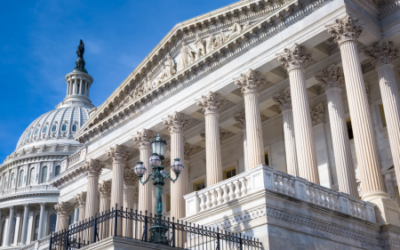Hundreds of cities with minor league baseball teams already have launched stadium construction projects or have plans to launch them soon. This phenomenon is not happening because a hundred cities decided all at once to upgrade stadiums where minor league baseball teams perform. Instead, the new construction and renovation activity is the result of Major League Baseball’s (MLB) mandate to upgrade or replace all stadiums where all MLB minor league affiliates play ball.
MLB now regulates minor league affiliates, and the organization has the authority to dictate terms to any team or league that desires to be part of the MLB. When MLB assumed operational oversight, a decision was made to ‘recruit and develop elite players and build the next generation of baseball fans.’ That included upgrading the experience for players and fans alike.

Some projects were launched quickly. Other compliance projects are now facing launch deadlines. The urgency comes from the MLB mandate that requires compliance acknowledgement, meaning plans in place or a project launch, by the spring 2023 baseball season. Regardless of how the projects are designed, costs will be high. And because of that, public-private partnership (P3) engagements, public funding, and other alternative funding sources are all under consideration.
Just this month, the Maryland Legislature allocated $200 million for upgrades to minor league baseball stadiums throughout the state. Maryland has numerous MLB minor league teams, and, in most cases, the state investment will be matched with other funding. Project launches are anticipated soon.
Knoxville, Tennessee, has entered a public-private partnership (P3) for a new ballpark in the downtown area. Initial cost projections for the project were set at $80 million. The ballpark will be owned by the Knoxville/Knox County Sports Authority, with funding coming from both the city and county. Public tax dollars will be responsible for $74.5 million in funding and the state will contribute $13.5 million. The stadium owner has also committed to invest $142 million in private money to build 630,000 square feet of restaurants, retail shops, and residences around the stadium.
San Antonio, Texas, is also facing a deadline to meet stadium compliance. Currently the Double-A San Diego Padres franchise, San Antonio Missions, play ball in a facility that opened in 1994. It is currently the oldest in the league. Bexar County officials are exploring locations for a new stadium because renovation estimates are as high as new construction projections. Community leaders are seeking a location that will allow for mixed-use development around the stadium. No decisions have been made yet about how construction costs will be covered, but stakeholders are hopeful that some degree of government funding will be available.
The Modesto Nuts, a Single-A affiliate of the Seattle Mariners, and the city of Modesto, California, will work with private sector partners to construct a new downtown ballpark. The total cost is estimated between $85 million and $122 million. Local leaders are seeking a location where other development can be included. Retail outlets, parking garages, and other facilities and transportation options are all being discussed because city leaders are hopeful for a significant economic impact. Private sector capital investment will likely be consolidated with city and county bonds to cover costs.
Arkansas’s minor league baseball team will collaborate with city leaders in North Little Rock to launch an expansive renovation of city-owned Dickey-Stephens Park. However, there has been significant controversy about how renovation costs are covered. The Arkansas Travelers have played ball in a facility owned by the city of North Little Rock since 2007. A contract exists but it remains unclear as to how the mandated renovation costs will be handled.
Community leaders in the Richmond, Virginia, area will oversee the development of a 67-acre project called the Diamond District. The central anchor of the development will be a newly constructed ballpark for the Richmond Squirrels, the Double-A affiliate of the San Francisco Giants. This project has been tagged with an estimated cost of between $80 million and $125 million.
Some mandated stadium renovations and upgrades will be less costly, depending on the current state of each facility. In the New York city of Rochester, the Triple-A affiliate of the Washington Nationals, the Rochester Redwings, will get a renovated and upgraded stadium for an estimated cost of only $25 million.
Construction-related opportunities tied to stadium upgrades are available throughout the country as new MLB mandates are made. Contractors, developers and/or investors are advised to move quickly if these types of opportunities are of interest.






